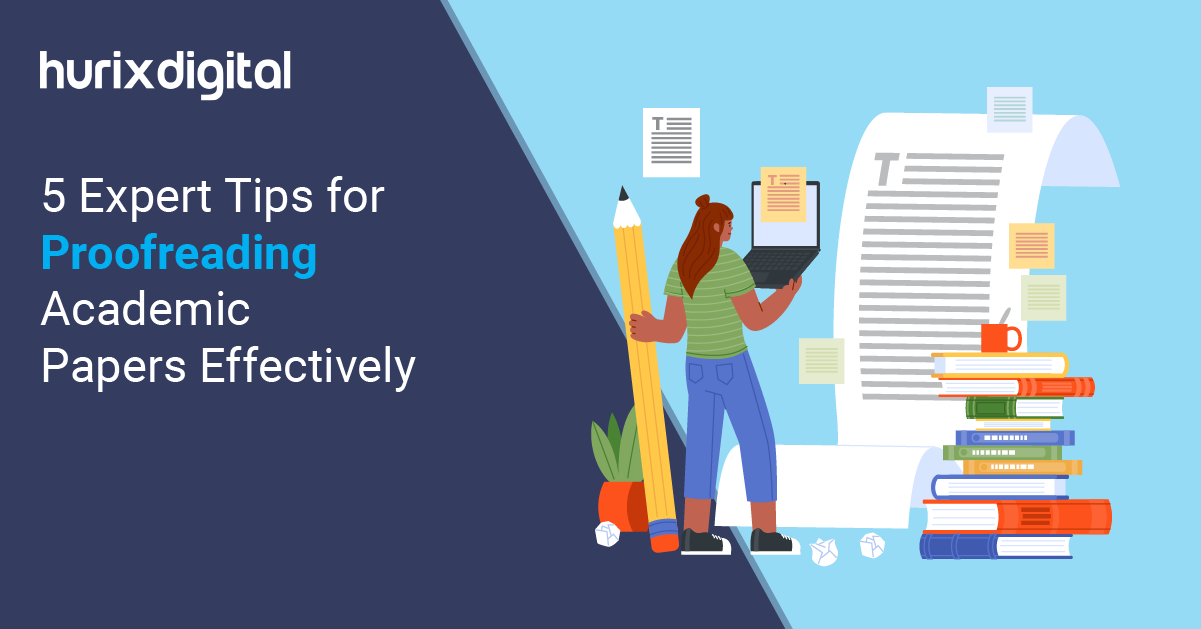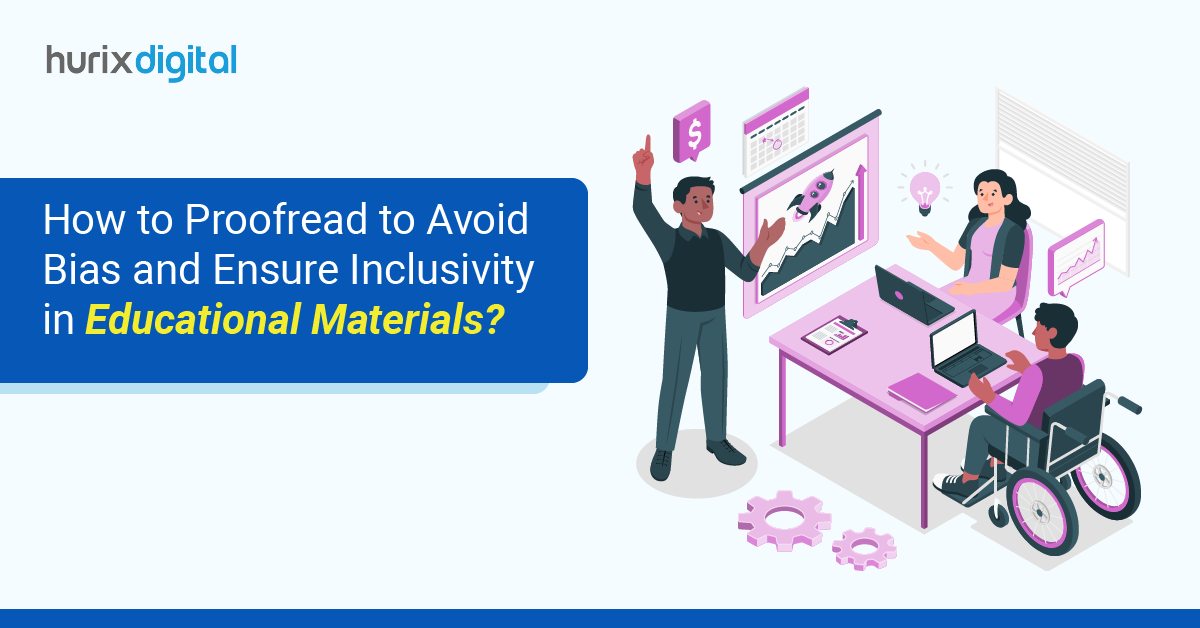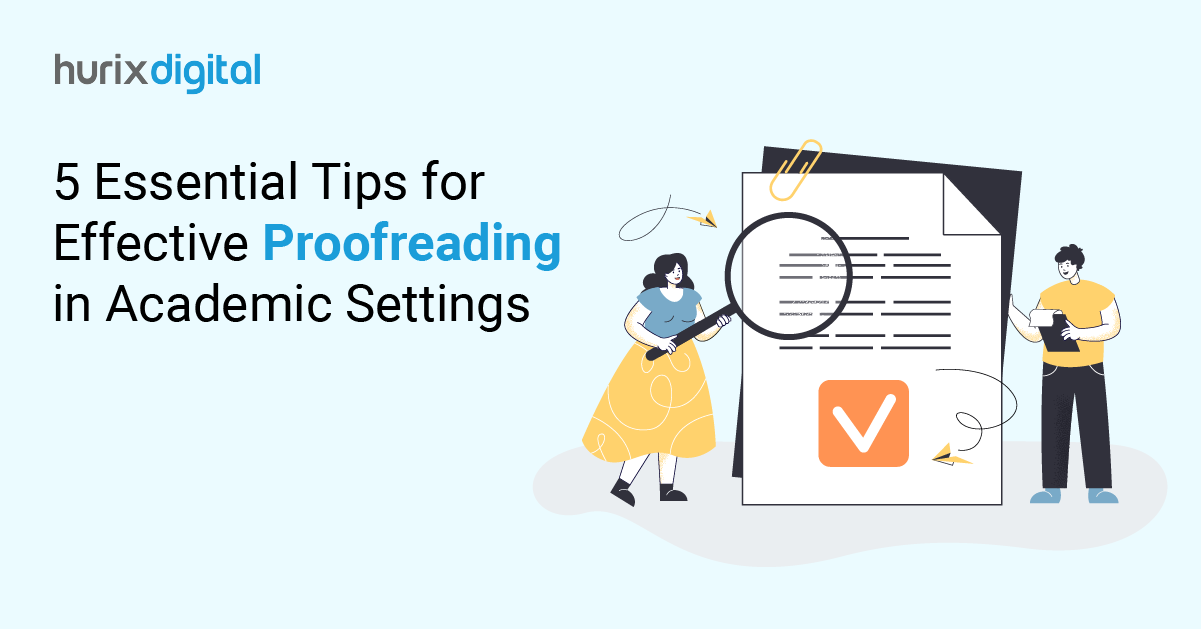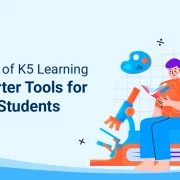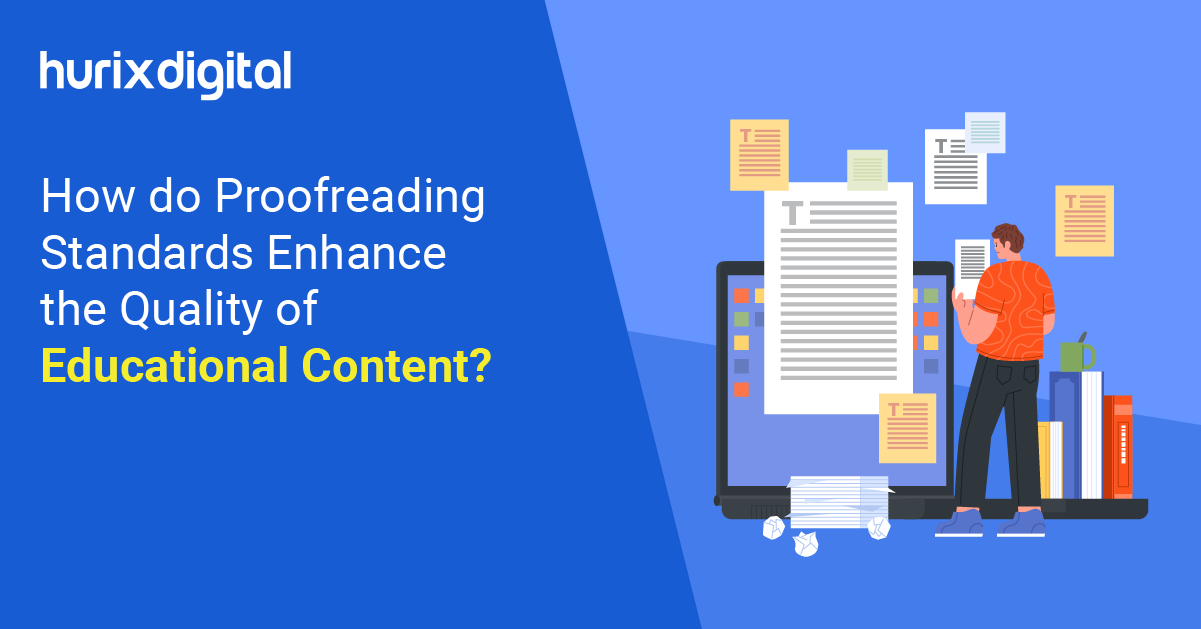
How do Proofreading Standards Enhance the Quality of Educational Content?
Summary
This article explores how proofreading rules ensure high-quality educational content, emphasizing accuracy, clarity, credibility, and consistency, and discusses best practices in academic proofreading for optimal learning outcomes.
In education, knowledge is distributed depending on the correctness, clarity, and coherence of educational materials. Textbooks, scholarly papers, and internet resources need to be of the highest caliber possible.
Proofreading standards are critical in ensuring that this material meets the highest quality criteria. Following strict proofreading standards helps teachers, researchers, content providers, and others improve the accuracy and dependability of their offerings.
This article explores how proofreading rules support the general learning process and their relevance in instructional materials.
Table of Contents:
- The Importance of Proofreading in Educational Content
- The Role of Professional Proofreading Services
- Enhancing Research Papers with Proofreading Standards
- The Best Academic Proofreading Services
- Overcoming Proofreading Challenges
- The Impact of Proofreading on Educational Outcomes
- Best Practices for Proofreading Educational Content
- Conclusion
The Importance of Proofreading in Educational Content
As the last stage of the content creation process, copyediting and proofreading fix mistakes to ensure that the material is error-free, concise, and clear. In instructional materials, the demand for accuracy is even stronger. Here are some reasons why proofreading standards are important for educational content.
1. Accuracy and Clarity
Proofreading standards ensure error-free instructional materials with great impact, preventing any possibility of confusing or misleading students. Following these guidelines helps content producers make sure their work precisely and clearly expresses concepts.
2. Credibility
Errors in scholarly books compromise the legitimacy of the author and the material. Academic proofreading and editing services play a critical role in maintaining the integrity of educational materials and guaranteeing that they meet the highest quality standards.
3. Consistency
Consistency in vocabulary, style, and formatting is vital for educational content. Proofreading methods ensure consistency among papers, therefore increasing their accessibility and simplicity.
Also Read: Enhancing Print Consistency: Best Practices for Prepress Success
The Role of Professional Proofreading Services
Professional academic proofreading and academic editing services specialize in reviewing and enhancing academic papers, ensuring they meet the standards required in learning environments.
1. Academic Paper Editing Services
Academic paper editing services aim to enhance the quality of scholarly works such as research papers, essays, and dissertations. Their main concerns include grammar mistakes, better sentence construction, and making sure the material follows academic standards.
2. Master Thesis Proofreading
Writing a master’s thesis is a major academic accomplishment; hence, it is important to guarantee its quality. Master thesis proofreading services offer a complete review of the work with an eye toward language, punctuation, formatting, and academic standards.
3. Scientific Proofreading
The specialist service, scientific proofreading, focuses on ensuring that scientific material follows scientific writing standards and is error-free. It includes checking conformity to publication standards, data presentation, and difficult vocabulary.
Enhancing Research Papers with Proofreading Standards
Research papers, which are a pillar of academic activity, must be of the highest quality. Making sure these materials are well-written, clear, and error-free depends mostly on research paper proofreading. The procedure consists of numerous important stages:
1. Grammar and Punctuation
Around 16% of doctoral students believe that grammar is one of their difficulty areas. Proofreading makes things easier for them because it ensures that the work is devoid of grammatical and punctuation mistakes, which undermine the clarity and professionalism of the text.
2. Clarity and Readability
Proofreading methods concentrate on making the work more readable, thereby ensuring that difficult concepts are succinctly and clearly articulated.
3. Formatting and Style
Academic writing depends heavily on following particular formatting and style rules. Whether in APA, MLA, Chicago, or another style, proofreaders ensure that the paper complies with the necessary referencing style.
4. Consistency
Proofreading ensures consistency in language, style, and formatting throughout the document, allowing readers to follow every argument and idea presented.
Also Read: The Ultimate Guide to Choosing the Best Proofreading Service for Your Needs
The Best Academic Proofreading Services
Maintaining the quality of instructional materials depends on selecting a good proofreading service. Excellent academic proofreading services combine knowledge, experience, and meticulous attention to detail. They use seasoned proofreaders who understand the particular standards for academic writing.
1. Expertise in Academic Writing
The best proofreading services hire academic writing professionals with advanced degrees and experience. This ensures that they are aware of the nuances of academic material and can offer insightful criticism.
2. Attention to Detail
Excellent proofreading services ensure that their exacting approach examines and rectifies every element of the paper, including adherence to reference standards, formatting issues, and linguistic mistakes.
3. Timely Delivery
Academic deadlines are sometimes rigorous; hence, delays might have major effects. The top academic proofreading services guarantee timely delivery, guaranteeing the proofreading and delivery of papers within the required timeframe.
4. Confidentiality
Academic material is sometimes sensitive, making confidentiality an important factor. Expert proofreading services ensure the highest degree of secrecy in handling all kinds of documentation.
Overcoming Proofreading Challenges
Proofreading academic materials can be difficult because of the content’s complexity and the need for accuracy. However, we can control these difficulties by using expert services and applying optimum proofreading techniques.
- Complex Terminology: Academic materials often contain specialized language that can be challenging to proofread. Expert proofreaders with knowledge in particular disciplines can help guarantee consistent and proper use of these phrases.
- Formatting Requirements: Different academic fields have particular formatting rules. Whether it’s for a research paper, thesis, or scientific article, proofreaders guarantee the content satisfies these criteria.
- Time Constraints: Academic deadlines may be tight, which makes it difficult to finish careful proofreading. The proofreading problem lies in effectively managing time to evaluate the document in all its elements without compromising quality.
The Impact of Proofreading on Educational Outcomes
The quality of instructional materials directly impacts learning results. When content is devoid of mistakes and presented correctly, students can concentrate on understanding the topic instead of battling confusing or false information.
- Improved Comprehension: Well-proofread instructional materials help students grasp difficult ideas better. Clear and easily accessible content is critically dependent on proofreading standards.
- Enhanced Learning Experience: Mistakes in instructional materials could cause misinterpretation and disrupt the learning process. Following proofreading guidelines helps teachers provide a more seamless and successful classroom environment.
- Confidence in Learning Materials: Well-proofread materials will inspire more confidence in both teachers and students. Knowing that the material is accurate and trustworthy allows students to interact with it more fully.
- Higher Academic Performance: Quality instructional materials lead to higher academic success. Students who have access to error-free resources are more likely to excel in their academics.
Best Practices for Proofreading Educational Content
Optimal standards in proofreading guarantee the highest quality of instructional materials. These techniques promote clarity, help spot and fix mistakes, and raise the overall quality of the content.
- Multiple Proofreading Passes: An optimum number of proofreading passes helps find mistakes that would be missed in one pass. Every pass can concentrate on many facets, including formatting, grammar, and punctuation.
- Reading Aloud: Reading the material aloud helps identify run-on sentences, odd language, and other issues that are not clear-cut when reading silently.
- Using Proofreading Tools: Digital technologies can assist proofreaders by pointing out grammar and spelling errors. However, to achieve the best results, they should work in tandem with manual proofreading.
- Taking Breaks: Proofreading requires attention to detail and concentration. Between proofreading sessions, breaks help to keep focus and lower the possibility of error omission.
- Peer Reviews: Having another person check the material might offer a different viewpoint and help find mistakes that the original author may have missed.
Also Read: 8 Pro Tips for Proofreading in 2024!
Conclusion
Proofreading standards are established to improve the caliber of instructional materials. Proofreading is a necessary stage in the content generation process to ensure consistency and legitimacy and enhance clarity and correctness.
Maintaining these standards depends critically on expert academic proofreading, academic editing, and specialist proofreading for scientific and research publications.
Following the best standards and overcoming shared obstacles will help content authors create top-notch instructional tools that support efficient learning and academic success.
Hurix Digital offers an unmatched solution for academic proofreading needs. We ensure that your material supports the professionalism and credibility of your brand, inspiring confidence in your clients.
Book a call today to get started!

Vice President – Digital Content Transformation. He is PMP, CSM, and CPACC certified and has 20+ years of experience in Project Management, Delivery Management, and managing the Offshore Development Centre (ODC).
